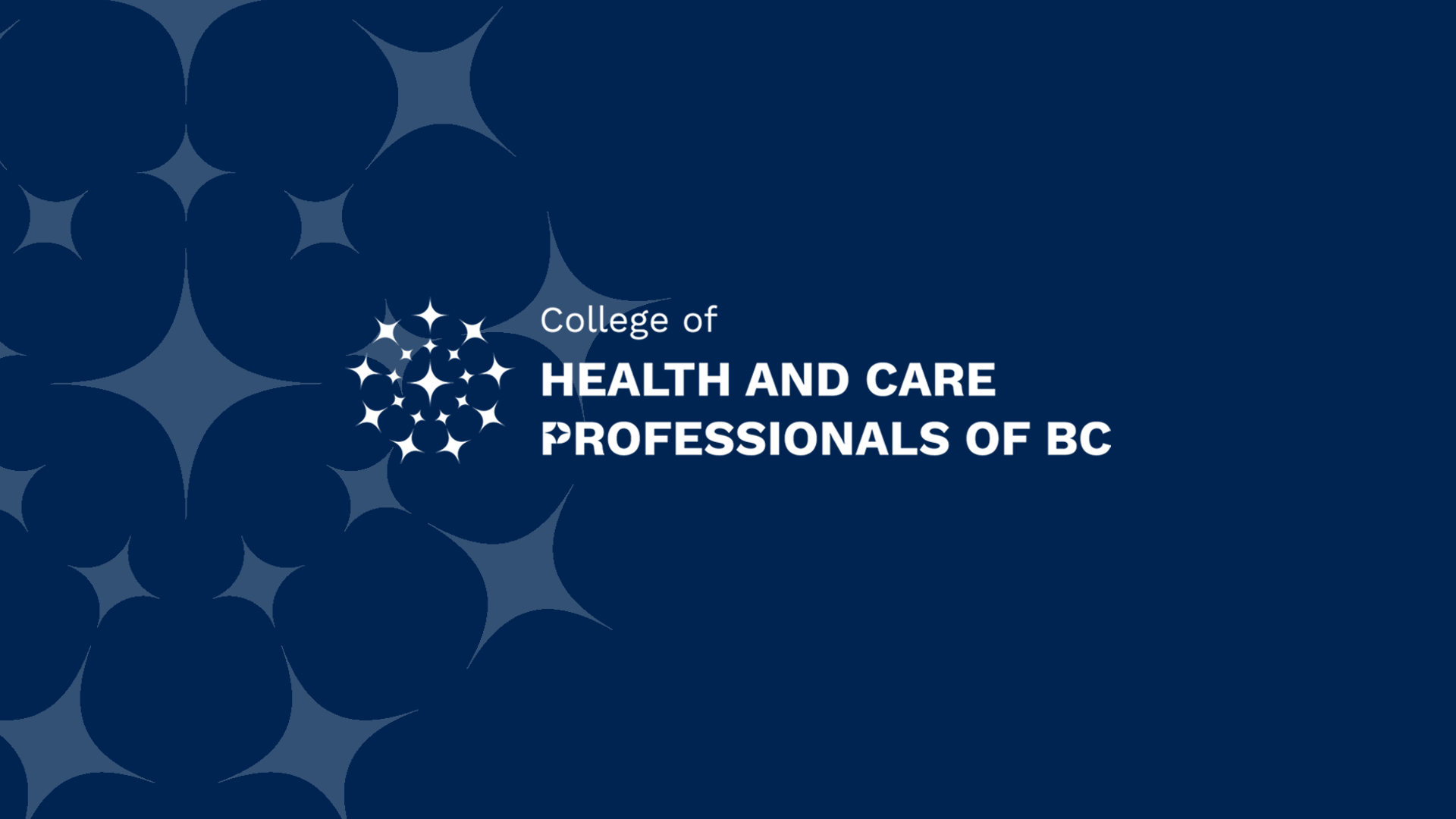As CHCPBC continues work to harmonize our processes across nine professions, we are turning our attention to practice standards. Currently, there are seven sets of legacy standards for the nine professions we regulate, each with its own style, language, and level of prescriptiveness. Essentially, each profession has its expectations organized in a different way.
Upon review, our practice standards expectations of registrants across the professions are more similar than different. Work has started, with the assistance of an external consultant, to map the content of all current standards and to work toward a single set of harmonized standards for all CHCPBC registrants. We recognize that some requirements are profession-specific and we will ensure that content is not lost. Some profession-specific content will appear within enforceable guidelines, rather than the harmonized standards.
A standard is an expected and achievable level of performance against which actual performance can be compared. It is the minimum level of acceptable performance.
Standards promote, guide, and direct professional practice. They set clear expectations for performance, conduct, and competency on topics such as consent, confidentiality, and documentation. Standards are used not only by CHCPBC, but also by employers, the public, and others with an interest in understanding professional practice expectations.
While the new harmonized standards will look different than those of the legacy colleges, there will be minimal change to the expectations set out in the standards. There are two exceptions to this:
- The pending Health Professions and Occupations Act (HPOA) requires standards to address certain topics, and most legacy standards are compliant with these requirements already. However, if a legacy college did not address these topics, you will find new expectations in the harmonized standards – for example, a standard on preventing and reporting sexual misconduct and sexual abuse.
- Where discrepancies between standard requirements have been identified – for example, the length of time a registrant must retain records varies widely across legacy standards.
Prior to drafting the harmonized standards, we reviewed standards from other multi-discipline regulatory organizations within Canada and abroad. The consultant is drafting the harmonized standards in collaboration with the professional practice advisors from each profession, with input from the Professional Practice and Standards Advisory Committee. Further consultation is planned, and there will be an opportunity for registrants to review and provide feedback on the draft harmonized standards. The goal is to have the harmonized standards ready to take effect when the HPOA is brought into force on April 1, 2026.
The harmonized standards represent an important milestone for CHCPBC, and an opportunity to recognize where the professions’ expectations are similar, and where we will continue to need profession-specific guidance to support registrants in meeting the expectations for delivery of safe, effective, quality healthcare services.

